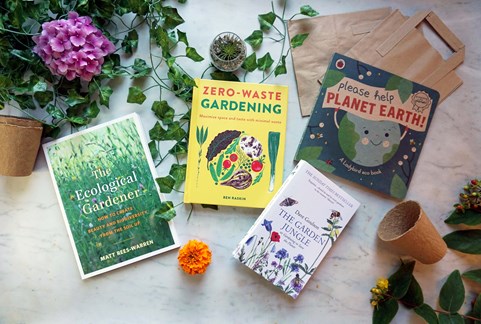Our environmental and sustainability policy
Since the late 1980s, we have been aware of the ways our business operations may have an impact on the environment and have always sought alternative ways of doing things to reduce or remove harm.
Today, environmental action has never been more urgent, and we are committed to doing everything we can to make a difference. We consider the environmental impact of everything we do at all levels of business decision-making.
Here are just some of the ways we are striving to be better.
Areas of focus
Net Zero by 2030
 We want to achieve net zero carbon emissions by 2030. Our strategy for meeting this target is to reduce our emissions wherever possible, first and foremost. And we are making progress.
We want to achieve net zero carbon emissions by 2030. Our strategy for meeting this target is to reduce our emissions wherever possible, first and foremost. And we are making progress.
Changes we’ve made
- We reduced our annual energy consumption at our 13,500ft2 site to the equivalent of three average UK households by installing solar panelling at our headquarters.
- And by replacing lightbulbs with LEDs in our warehouse.
- We encourage environmentally responsible staff travel through implementing the bike-to-work scheme and opting for public transport for business travel, where possible.
- We’ve appointed an in-house Green Team to identify and lobby for ways to reduce our carbon footprint and make sure we are operating sustainably.
What’s next?
- Replacing gas central heating.
- Replacing all diesel and petrol vehicles with electric cars, once they reach end of life.
- Auditing staff commuting choices and incentivising environmentally friendly travel.
Reducing landfill waste & plastic
 Our warehouse team is expert at packing boxes to minimise damage to books, but we also want to make sure that we are not introducing unnecessary plastics or landfill waste with our methods.
Our warehouse team is expert at packing boxes to minimise damage to books, but we also want to make sure that we are not introducing unnecessary plastics or landfill waste with our methods.
Changes we’ve made
- We reuse cardboard boxes, and anything not good enough for boxing up books is shredded to be used as cushioning.
- We now tape up our boxes using a paper product, replacing plastic.
- Air pillows used to protect the books in our boxes are made of recycled materials and can be recycled.
What’s next?
- We are exploring ways to reduce or reuse the plastic wrap used for pallets or find more environmentally friendly alternatives.
Working with suppliers
We list thousands of books from hundreds of different publishers. We seek to stay informed about what publisher partners are doing to minimise their environmental impact and add our voice where we can. Many of our customers make requests to meet their own sustainability and environmental targets, and we can often work with publishers to fulfil those wishes.
list thousands of books from hundreds of different publishers. We seek to stay informed about what publisher partners are doing to minimise their environmental impact and add our voice where we can. Many of our customers make requests to meet their own sustainability and environmental targets, and we can often work with publishers to fulfil those wishes.
Changes we’ve made
- Most publishers use paper from sources certified by the Forest Stewardship Council (FSC) to print the majority of books. We strive to collect and record the FSC status of books where possible so we can pass this information on to our customers when asked.
- Our Publishing Relations Director Jonny Gallant is a member of the judging panel for the IPG Sustainability Awards.
What’s next?
- For the next phase of our Net Zero action plan we will be asking deeper questions about the impact of our role in the supply chain, and how we best handle returns and unsold stock.
Publisher sustainability policies
Find out more about the sustainability policies of some of the publishers we order the largest volume of books from:
Feedback or questions
Drop us a line if you have any questions, feedback or suggestions about our approach to sustainability and environmental action.



